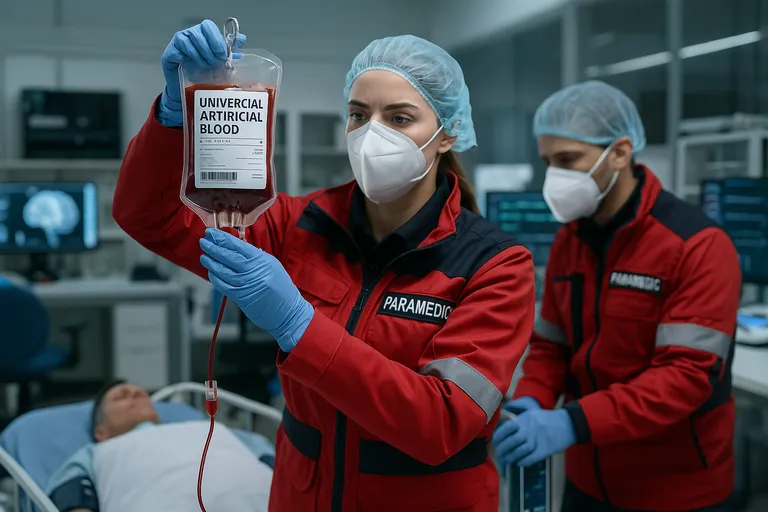In a revolutionary leap for medicine and emergency care, scientists have successfully developed artificial blood compatible with all human blood types — a breakthrough that could transform surgeries, trauma treatment, and battlefield medicine worldwide.
What Is Artificial Blood?
Artificial blood, often referred to as synthetic blood substitute, mimics the essential functions of real blood — primarily oxygen delivery and volume replacement. But the challenge has always been compatibility. Traditional blood transfusions require precise matching of A, B, AB, or O types to avoid dangerous immune reactions.
Now, researchers at the International Institute of Biomedical Innovation have created a bioengineered solution that works universally, regardless of the recipient’s blood type.
The Science Behind the Discovery
The synthetic blood is created using nanoparticles and stabilized hemoglobin molecules, enhanced with special enzymes and polymers that prevent coagulation or immune rejection. This allows the artificial blood to:
- Deliver oxygen like red blood cells
- Avoid triggering immune system responses
- Function across all blood types without cross-matching
“We’ve developed a platform that could replace donated blood in emergencies and surgery,” said Dr. Kamira Yao, lead scientist of the study. “This could be a game-changer in areas with blood shortages or where testing for type isn’t possible.”
Why It Matters
Globally, the demand for safe, available blood far outpaces supply — especially in conflict zones, disaster relief efforts, and rural hospitals. Universal artificial blood could:
- Save lives in mass casualty events
- Extend critical care in remote regions
- Eliminate the need for blood type testing in time-sensitive scenarios
- Reduce dependence on blood banks and donors
What’s Next?
The artificial blood is now entering Phase II clinical trials, with early results showing no adverse reactions in a range of recipients. Approval for emergency use could come as early as 2026, pending regulatory reviews.
A Glimpse Into the Future
If successful, this innovation would mark one of the most significant advancements in medical history since the discovery of blood types themselves. Imagine paramedics carrying a universal blood pack, ready to treat any patient on the spot — no delay, no matching, just immediate care.
By ✍️ Tammy Castillo - MicuPost Team
Sources:



